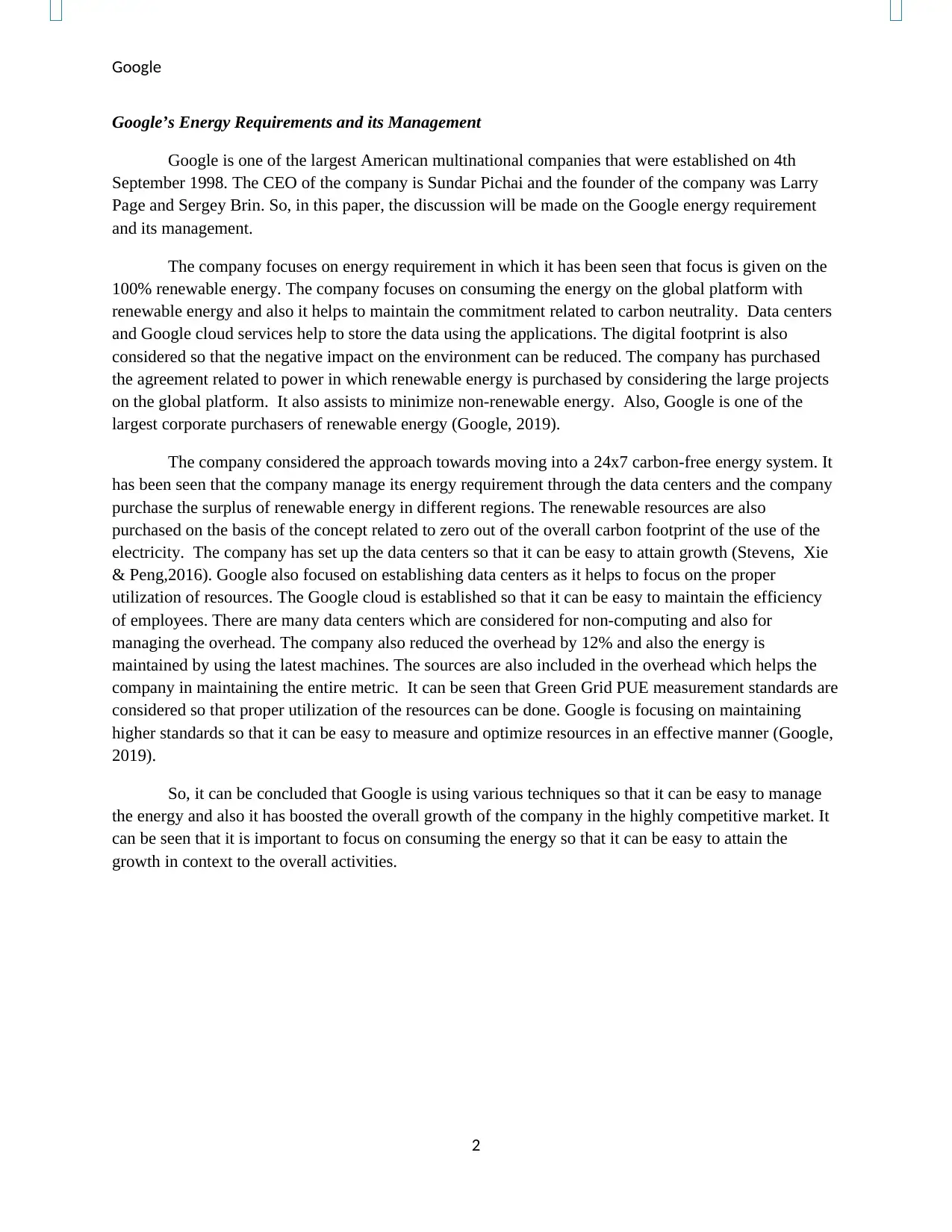Evaluating Google's Energy Requirements and Management Approach
VerifiedAdded on 2023/04/20
|3
|578
|493
Report
AI Summary
This report delves into Google's energy requirements and its comprehensive management strategies. As a multinational corporation, Google prioritizes renewable energy and aims for carbon neutrality. The company's energy consumption is primarily driven by its data centers and cloud services, which necessitate significant power. Google addresses these demands by investing in renewable energy projects globally and purchasing surplus renewable energy in various regions to offset its carbon footprint. The company focuses on establishing efficient data centers and using the latest machines to reduce overhead and optimize resource utilization. Google also adheres to Green Grid PUE measurement standards to ensure effective resource management. By implementing these strategies, Google not only manages its energy needs effectively but also promotes sustainability and enhances its overall growth in the competitive market. Desklib provides access to similar solved assignments and resources for students.
1 out of 3










![[object Object]](/_next/static/media/star-bottom.7253800d.svg)